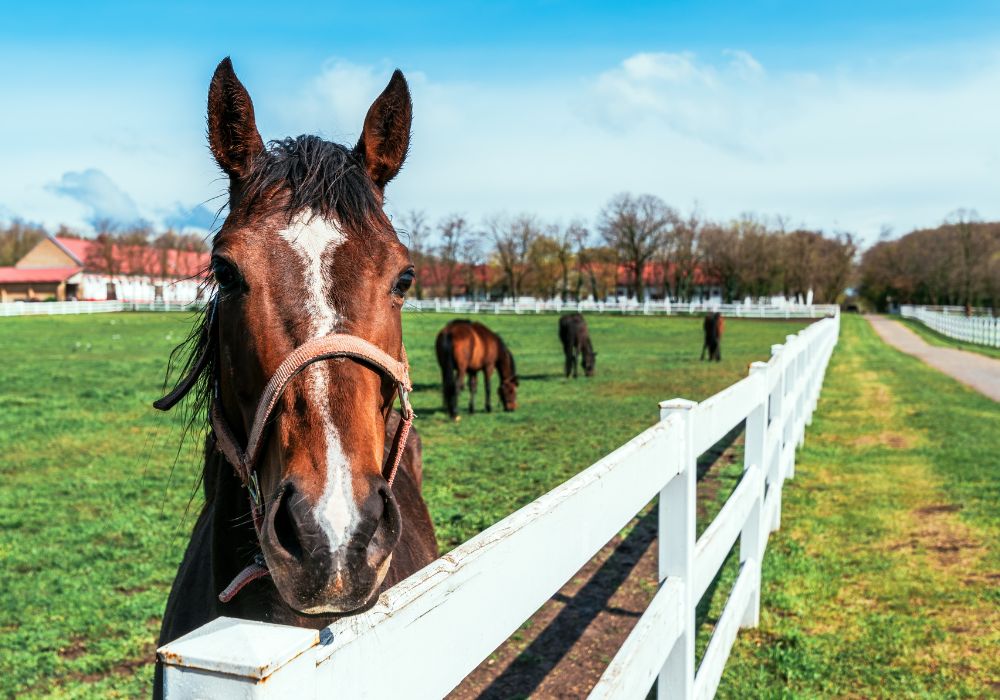Top 5 Common Horse Health Issues and How to Prevent Them
Maintaining the health and well-being of your horses is a top priority for every horse owner. Understanding common health issues and taking preventive measures can ensure your equine companions stay in top condition. Here are the top five common horse health issues and tips on how to prevent them:
1. Colic
Colic is a severe abdominal pain that can result from various gastrointestinal problems. It's one of the most common and serious health issues in horses.
Prevention Tips:
- Consistent Feeding Schedule: Feed your horse at regular intervals and avoid sudden changes in diet.
- Access to Clean Water: Ensure fresh, clean water is always available.
- Regular Exercise: Promote regular exercise to keep the digestive system functioning properly.
- Proper Forage: Provide high-quality forage and avoid feeding excessive grain or rich hay.
- Routine Deworming: Implement a deworming schedule based on your vet's recommendations.
2. Laminitis
Laminitis is a painful condition affecting the hooves, often related to metabolic disorders or excessive intake of rich feed.
Prevention Tips:
- Monitor Diet: Limit access to lush pastures and high-sugar feeds, especially for horses prone to weight gain.
- Maintain a Healthy Weight: Ensure your horse maintains a healthy body condition through a balanced diet and regular exercise.
- Regular Hoof Care: Schedule regular hoof trims and inspections by a farrier.
- Manage Underlying Conditions: Work with your vet to manage conditions like Cushing's disease or insulin resistance.
3. Respiratory Issues
Respiratory problems, such as heaves (COPD) and respiratory infections, can significantly impact a horse's health and performance.
Prevention Tips:
- Good Ventilation: Ensure stables and barns are well-ventilated to reduce dust and mold.
- Quality Bedding: Use dust-free bedding materials.
- Minimize Dust: Wet hay before feeding to reduce dust, and avoid feeding moldy hay.
- Vaccinations: Keep up-to-date with vaccinations to prevent respiratory infections.
4. Equine Gastric Ulcer Syndrome (EGUS)
Gastric ulcers are common in performance horses and can cause significant discomfort and poor performance.
Prevention Tips:
- Frequent Feeding: Feed small, frequent meals to keep the stomach partially full.
- Forage Availability: Provide constant access to forage, like hay or pasture.
- Reduce Stress: Minimize stressful situations and ensure your horse has ample turnout time.
- Avoid NSAIDs Overuse: Use non-steroidal anti-inflammatory drugs (NSAIDs) sparingly, as they can contribute to ulcer formation.
5. Parasite Infestations
Internal parasites can cause various health problems, including weight loss, colic, and diarrhea.
Prevention Tips:
- Regular Deworming: Implement a strategic deworming program based on fecal egg counts and vet recommendations.
- Pasture Management: Rotate pastures and avoid overgrazing to reduce parasite exposure.
- Clean Environment: Maintain a clean living environment by regularly removing manure from stalls and paddocks.
- Monitor Health: Keep an eye on your horse's overall condition and consult your vet if you notice signs of parasite infestation.
Preventive care is key to maintaining the health and well-being of your horses. By implementing these tips and working closely with your veterinarian, you can minimize the risk of common health issues and ensure your equine friends lead happy, healthy lives. At Sea Mountain Insurance, we're committed to supporting horse owners with the best insurance solutions to protect your valuable companions. Contact us today to learn more about our equine insurance plans.
